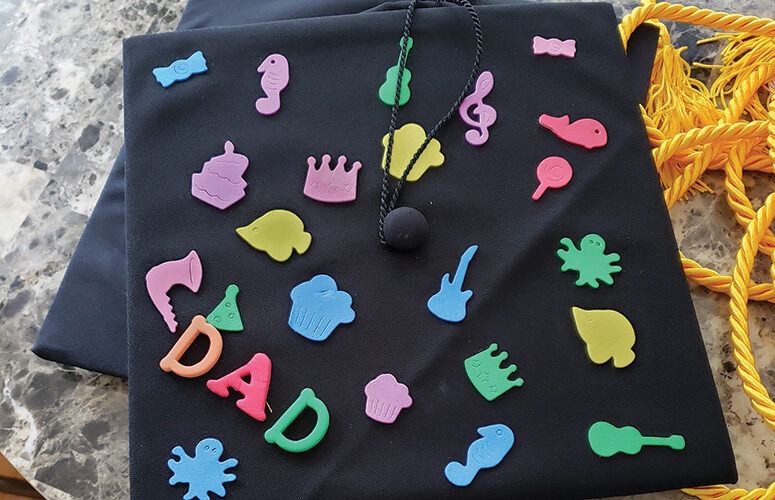
Apprenticeships and Higher Education Provide a Competitive Edge
Trades team up with colleges & universities to better prepare state’s skilled workers.
On May 19, 2021Construction projects throughout New Jersey still require the same skill sets that have kept carpenters, electricians, iron workers, heavy equipment operators, and other tradesmen and women on the job for generations. At the same time, advances in technology have generated increased demand for new knowledge and capabilities to augment those foundational skills.
Trade organizations and the state’s colleges and universities, with the support of Gov. Phil Murphy and other influential political and business leaders, have forged new relationships to bridge that gap. This collaborative approach is contributing to New Jersey’s economic success while positively impacting the lives of individuals both personally and professionally.
In March, the New Jersey Department of Labor and Workforce Development (NJDOL) announced $3 million in available grant funding under the NJ Pathways Leading Apprentices to a College Education (NJ PLACE 2.0) program to encourage the development of Degree Apprenticeship structures that integrate paid on-the-job learning with credit-bearing classroom education.
The Degree Apprenticeship model pairs apprenticeship partners with institutions of higher education to give student apprentices the opportunity to concurrently fulfill the requirements of a Registered Apprenticeship program and an associate’s, bachelor’s, or graduate degree by earning credit for paid work-based learning. The NJ PLACE 2.0 grant also encourages institutions of higher education to conduct prior learning assessments for students who have already completed a Registered Apprenticeship program and awards college credits retroactively.
At the time of the announcement, Governor Murphy said, “Building a stronger, fairer and more resilient New Jersey begins with job training and workforce development. NJ PLACE 2.0 is one of the many programs that will spark our economic recovery, providing thousands of residents with the education and resources they need to secure good-paying jobs, while supporting employers who need to be connected to skilled talent.”
Degree Apprenticeship programs developed under the NJ PLACE 2.0 grant allow student apprentices to earn college credits and an apprentice wage at the same time, removing the difficult choice between working to support themselves or attending classes to further their careers. A Degree Apprenticeship program draws a direct line from the classroom to a career.
“Apprenticeship and a post-secondary education are not mutually exclusive,” adds Labor Commissioner Robert Asaro-Angelo. “When completed together, student apprentices can achieve both the practical skills and theoretical knowledge needed to give them a competitive edge in a continuously evolving workforce.”
Hudson County Community College offers an “earn while you learn” model through its innovative Holz Technik Apprenticeship Program. Apprentices are hired by Eastern Millwork, attend Hudson County Community College and – at the end of four years – earn an A.A.S. in Advanced Manufacturing. At the end of five years, they earn a bachelor’s degree from Pittsburgh State University (Kansas), have a salary of $70,000, no college debt, and can continue to climb the career ladder.
When the program was announced in 2019, Governor Murphy lauded the initiative, saying, “This program addresses almost everything we have put forward as the blueprint for New Jersey’s economic future. It is a program focused on advanced manufacturing, one of the sectors in the innovation economy that I know we can dominate.”
Harry Cleaver was one of six IBEW Local 102 members to earn a Bachelor of Arts Degree from Rowan University in 2020. Local 102 provides 75% tuition reimbursement for its members who participate in the program. Currently working as a foreman for Forest Electric in Edison, Cleaver is the first member of his family to graduate from college. He hopes his degree in construction management will open many doors in his future. “I want to always push my career forward and never settle for just good enough,” Cleaver states. “I hope this opens a lot of opportunities within the union as well.”
Cleaver says his graduation was a day he’ll never forget. Although COVID-19 delayed the ceremony, he was determined to don his cap and gown and receive his diploma. Graduation day was originally scheduled for May and as delays continued, Rowan finally settled on a summer day in July for commencement. He was thrilled to have his wife and father there to share the moment. A father himself, Cleaver’s three children were so proud of what their Dad had accomplished that they took extra care in decorating his cap for the ceremony.
“At first, I figured I was not going to be able to walk for graduation and that bummed me out,” Cleaver continues. “I’ve started and stopped school a few times and this was a big deal for me. I really wanted to do this for my father and my wife and kids. I wanted my dad to see his son walk and receive his diploma and feel like, after all this time, I stuck with it and made him proud.”
“I also wanted my wife and kids to see that, no matter your age, you can still finish things you have started,” he adds. “This was as much an accomplishment for me as it was for my wife, helping with the kids more when I needed to study or take tests.”
According to IBEW Local 102 President Bernie Corrigan, “The partnership between our organization and Rowan University took down barriers and provided an accessible alternative pathway to a degree that one person thought he would never attain. The degree is fully on-line and is another step in providing our members with more advanced training to better serve our contractors, end users, and the business community in general.”
To access more business news, visit NJB News Now.
Related Articles:





